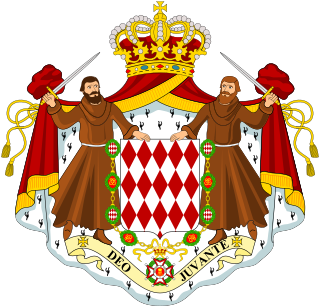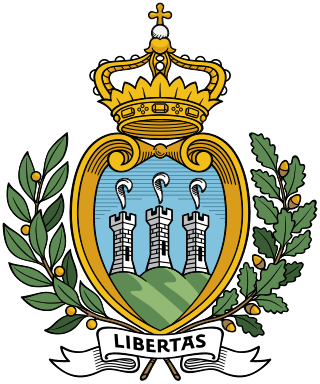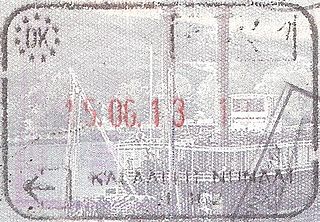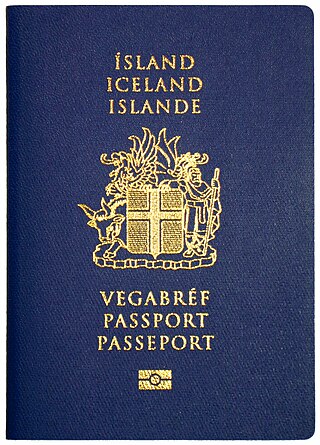
A visa is a conditional authorization granted by a polity to a foreigner that allows them to enter, remain within, or leave its territory. Visas typically include limits on the duration of the foreigner's stay, areas within the country they may enter, the dates they may enter, the number of permitted visits, or if the individual can work in the country in question. Visas are associated with the request for permission to enter a territory and thus are, in most countries, distinct from actual formal permission for an alien to enter and remain in the country. In each instance, a visa is subject to entry permission by an immigration official at the time of actual entry and can be revoked at any time. Visa evidence most commonly takes the form of a sticker endorsed in the applicant's passport or other travel document but may also exist electronically. Some countries no longer issue physical visa evidence, instead recording details only in immigration databases.

The visa policy of the Schengen Area is a component within the wider area of freedom, security and justice policy of the European Union. It applies to the Schengen Area and to other EU member states except Ireland. The visa policy allows nationals of certain countries to enter the Schengen Area via air, land or sea without a visa for up to 90 days within any 180-day period. Nationals of certain other countries are required to have a visa to enter and, in some cases, transit through the Schengen area.

An Italian passport is issued upon request to an Italian citizen for the purpose of international travel. It is valid for 10, 5 or 3 years, depending on the applicant's age. Its biometric version has been available since 2006.

The Schengen Area is an area encompassing 27 European countries that have officially abolished border controls at their mutual borders. Being an element within the wider area of freedom, security and justice policy of the European Union (EU), it mostly functions as a single jurisdiction under a common visa policy for international travel purposes. The area is named after the 1985 Schengen Agreement and the 1990 Schengen Convention, both signed in Schengen, Luxembourg.

A Barbados passport is a travel document issued to citizens of Barbados, in accordance with Citizenship Act from 1978, the Immigration Act from 1997, and the Barbados Constitution, for the purpose of facilitating international travel. It allows the bearer to travel to foreign countries in accordance with visa requirements, and facilitates the process of securing assistance from Barbados consular officials abroad, if necessary.

A Mexican visa is a document issued by the National Institute of Migration, dependent on the Secretariat of the Interior, with the stated goal of regulating and facilitating migratory flows into the country.

Visitors to Armenia must obtain a visa from one of the Armenian diplomatic missions unless they are citizens of one of the visa-exempt countries, or citizens who may obtain a visa on arrival, or citizens eligible for an e-Visa. Citizens of the Commonwealth of Independent States and citizens of all Eurasian Economic Union and European Union member states may enter Armenia without a visa.

Visitors to Montenegro must obtain a visa from one of the Montenegrin diplomatic missions, unless they come from one of the visa exempt countries. Visa policy is regulated by Regulation on Visa Regime Act. Where there are no diplomatic or consular representations of Montenegro, visa requiring foreigners may obtain them from diplomatic or consular representations of Serbia, Bulgaria and Croatia.

Visitors to North Macedonia must obtain a visa from one of the North Macedonia diplomatic missions, unless they come from one of the visa exempt countries.

The visa policy of Albania allows citizens of certain countries to enter the Albania without a visa. Citizens of certain other countries must obtain a visa from one of the Albanian diplomatic missions. Alternatively, they may obtain an e-Visa.

The Andorran government imposes no visa requirements on its visitors, and only requires a passport or European Union national identity card for entrance. However, since the country is only accessible via the Schengen countries of Spain or France, entrance is not possible without entering the Schengen area first, and the Schengen visa rules can therefore be regarded as applying de facto. Because Andorra is not part of the Schengen area, a multiple entry visa is required to re-enter the Schengen area when leaving Andorra. Foreign visitors, including EU citizens, looking to stay in Andorra more than 90 days require a residence permit.

Visitors to Bosnia and Herzegovina must obtain a visa from one of the Bosnia and Herzegovina diplomatic missions, unless they come from one of the visa exempt countries.

The visa policy of Turkey deals with the requirements that a foreign national wishing to enter Turkey must meet to be permitted to travel to, enter and remain in the country.

Visitors to the Dominican Republic must obtain a visa from one of the Dominican Republic diplomatic missions unless they are citizens of one of the visa-exempt countries.

Monaco does not have a visa policy of its own and the Schengen Visa policy applies. Although Monaco is not part of the European Union, or the Schengen Agreement, its territory is part of the Schengen Area by virtue of its customs Union with France as a result of the "Convention on Good Neighbourly Relations of 18 May 1963 on the entry, stay and establishment of foreigners in Monaco" between France and Monaco. The 1963 convention was adapted to allow Monaco to be administered within the Schengen Area as if it were part of France.

San Marino is not a member of the European Union or European Economic Area. However, it maintains an open border with Italy. Since San Marino is only accessible via Italy entrance is not possible without entering the Schengen Area first, therefore Schengen visa rules apply de facto. Foreign visitors staying more than thirty days in San Marino must obtain a permit from the government.

The British Overseas Territories maintain their own entry requirements different from the visa policy of the United Kingdom. As a general rule, British citizens do not have automatic right of abode in these territories.

The visa policy of Greenland consists of the requirements for foreign nationals to enter and remain in Greenland.

Passports of the EFTA member states are passports issued by the European Free Trade Association (EFTA) member states Iceland, Liechtenstein, Norway and Switzerland. EFTA is in this article used as a common name for these countries.

During the COVID-19 pandemic, many countries and regions imposed quarantines, entry bans, or other travel restrictions for citizens of or recent travelers to the most affected areas. Some countries and regions imposed global restrictions that apply to all foreign countries and territories, or prevent their own citizens from travelling overseas.




















